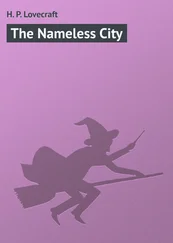Maurus Jokai - The Nameless Castle
Здесь есть возможность читать онлайн «Maurus Jokai - The Nameless Castle» весь текст электронной книги совершенно бесплатно (целиком полную версию без сокращений). В некоторых случаях можно слушать аудио, скачать через торрент в формате fb2 и присутствует краткое содержание. Город: New York, Год выпуска: 1898, Издательство: Doubleday, Page & Company, Жанр: Историческая проза, на английском языке. Описание произведения, (предисловие) а так же отзывы посетителей доступны на портале библиотеки ЛибКат.
- Название:The Nameless Castle
- Автор:
- Издательство:Doubleday, Page & Company
- Жанр:
- Год:1898
- Город:New York
- ISBN:нет данных
- Рейтинг книги:4 / 5. Голосов: 1
-
Избранное:Добавить в избранное
- Отзывы:
-
Ваша оценка:
- 80
- 1
- 2
- 3
- 4
- 5
The Nameless Castle: краткое содержание, описание и аннотация
Предлагаем к чтению аннотацию, описание, краткое содержание или предисловие (зависит от того, что написал сам автор книги «The Nameless Castle»). Если вы не нашли необходимую информацию о книге — напишите в комментариях, мы постараемся отыскать её.
The Nameless Castle — читать онлайн бесплатно полную книгу (весь текст) целиком
Ниже представлен текст книги, разбитый по страницам. Система сохранения места последней прочитанной страницы, позволяет с удобством читать онлайн бесплатно книгу «The Nameless Castle», без необходимости каждый раз заново искать на чём Вы остановились. Поставьте закладку, и сможете в любой момент перейти на страницу, на которой закончили чтение.
Интервал:
Закладка:
The colonel laughed in a peculiar manner.
“Your word of honor, Herr Count, would be entirely satisfactory in all other questions save those relating to the fair sex—and to war. You will excuse me, therefore, if I take the liberty to doubt your assertion in this case, and request you to prove that my suspicions are at fault. Without this proof I will not move from this spot.”
“Then I am very sorry for you, Herr Colonel,” returned Count Vavel, “but I shall be compelled to leave you and your suspicions in possession of this spot.”
He made as if he would pass onward; but the colonel politely but with decision barred the path.
“I must request that you wait a little longer, Herr Count,” he said, his face darkening.
“And why should I?” demanded the count.
“To convince me that the lady on your arm is not my wife,” was the reply, in an excited tone.
“You will have to remain unconvinced,” in an equally excited tone retorted Count Vavel; and for a brief instant it was a question which of the two enraged men would strike the first blow.
The threatening scene was suddenly concluded by the baroness, who flung back her veil, exclaiming: “Here, Colonel Barthelmy, you may convince yourself that I am not your wife.”
Leon Barthelmy started in amazement, and hastily laid his hand against his lips as if to repress the words which had rushed to them. Then he bowed with exaggerated courtesy, and said: “I most humbly beg your pardon, Herr Count Vavel. This lady is not Ange Barthelmy. These gentlemen are witnesses that I have asked your pardon in the proper form.”
The colonel’s companions, who had come hastily forward at the threatened conflict between their superior and the count, were gazing in a peculiar manner at the lady whose hospitality they had so lately enjoyed. Colonel Barthelmy also, although he bowed with elaborate courtesy before the baroness, cast upon her a glance that was full of insulting scorn.
The situation had changed so rapidly—as when a sudden flash of lightning illumines the darkness of night; and like the electric flash a light sped into Vavel’s heart and illumined it with a delicious, a heavenly warmth that made it throb madly. But only for an instant. Then he realized that this woman who had dared everything for his sake had been insulted by the glance of scorn and derision.
He had now lost all control of himself. He snatched a pistol from his pocket, directed the muzzle toward Colonel Barthelmy’s sneering face, and said in a voice that quivered with savage fury:
“I demand that you beg this lady’s pardon.”
“You do?” coolly returned the colonel, still smiling, and gazing calmly into the muzzle of the pistol.
“Yes—or I will blow out your brains!”
The two officers accompanying the colonel drew their swords. The baroness uttered a cry of terror, and flung herself on Vavel’s breast.
“I presume you will allow me to inquire, first, what relation this lady bears to you?”
Colonel Barthelmy asked the question in measured tones; and without an instant’s hesitation came Count Vavel’s reply:
“The lady is my betrothed wife.”
The sneer vanished from the colonel’s lips, and the swords of his companions were returned to their scabbards.
“I hasten to apologize,” said the colonel. “Accept, madame, my deepest reverence, and do not refuse to forgive the insulting scorn my ignorance caused me to express. Permit me to convince you of my sincere homage, by this salute.”
He bent his head and pressed his lips to one of the lady’s hands, which were clasped about Count Vavel’s arm. Then, with his helmet still in his hand, he turned to Count Vavel, and added: “Are you satisfied?”
“Yes,” was the curt reply.
“Then let us shake hands—without malice. Accept my sincerest congratulations. To you, baroness, I give thanks for the lesson you have taught me this morning.”
He bowed once more, then stepped to one side, indicating that the way was clear.
The baroness drew her veil over her face, and, clinging tremblingly to the arm of her escort, walked by his side back to the highway, the three officers following at a respectful distance.
When they emerged from the forest they saw the three horses which had been left by the colonel and his companions in charge of the grooms. Henry must have told the gentlemen where to find his master.
With what different emotions Count Vavel returned to the castle! The dreamer in his slumbers had given utterance to words which betrayed what he had been dreaming, and he compelled the vision to abide with him even after he had wakened. He felt that he had the right to do what he had done. This woman loved him as only a woman can love; and what he had done had only been his duty, for he loved her! What he had said was no falsehood—the words had not been forced from him merely to preserve her honor; they were the truth.
Count Vavel stopped the carriage at the park gate, assisted his companion to alight, and sent Henry on to the castle with the horses.
“What have you done?” in a deeply agitated voice exclaimed the baroness, when they were alone in the park.
“I gave expression to the feeling which is in my heart.”
“And do you realize what that has done?”
“What has it done?”
“It has made it impossible for us to meet again—for us ever to speak again to each other.”
“I cannot see it in that light.”
“You could were you to give it but a moment’s serious thought. I do not ask what the mysterious lady at the castle is to you; I know, however, that you must be everything to her. Pray don’t believe me cruel enough to rob her of her whole world. I cannot ask you to believe a lie—I cannot pretend that you are nothing to me. I have allowed you to look too deeply into my heart to deny my feelings. But there is something besides love in my heart! it is pride. I am too proud to take you from the woman to whom you are bound—no matter by what ties. Therefore, we must not meet again in this life; we may meet again in another world! Pray do not come any farther with me; I can easily find the way to my boat. No one at the manor knows of my absence. I must be careful to return as I came—unseen. And now, one request: Do not try to see me again. Should you do so, it will compel me to flee from the neighborhood. Adieu!”
She drew her veil closer over her face, and passed swiftly with noiseless steps through the gateway.
Ludwig Vavel stood where she had left him, and looked after her until she vanished from his sight amid the trees. Then he turned and walked slowly toward the castle.
CHAPTER III
Count Vavel did not see Marie, after his return from the drive with the baroness, until dinner. He had not ventured into her presence until then, when he fancied he had sufficiently mastered his emotions so that his countenance would not betray him. The consciousness of his disloyalty to the young girl troubled him, and he could not help but tremble when he came into her presence. It was not permitted to him to bestow his heart on any one. Did he not belong, soul and body, to this innocent creature, whom he had sworn to defend with his life?
From that hour, however, Marie’s behavior toward him was changed. He could see that she strove to be attentive and obedient, but she was shy and reserved. Did she suspect the change in him? or could it be possible that she had seen the baroness driving with him? It was very late when her bell signaled that she had retired, and when Ludwig entered the outer room, as usual, he found a number of books lying about on the table. Evidently the young girl had been studying.
The next morning Ludwig came at the usual hour to conduct her to the carriage.
Читать дальшеИнтервал:
Закладка:
Похожие книги на «The Nameless Castle»
Представляем Вашему вниманию похожие книги на «The Nameless Castle» списком для выбора. Мы отобрали схожую по названию и смыслу литературу в надежде предоставить читателям больше вариантов отыскать новые, интересные, ещё непрочитанные произведения.
Обсуждение, отзывы о книге «The Nameless Castle» и просто собственные мнения читателей. Оставьте ваши комментарии, напишите, что Вы думаете о произведении, его смысле или главных героях. Укажите что конкретно понравилось, а что нет, и почему Вы так считаете.












